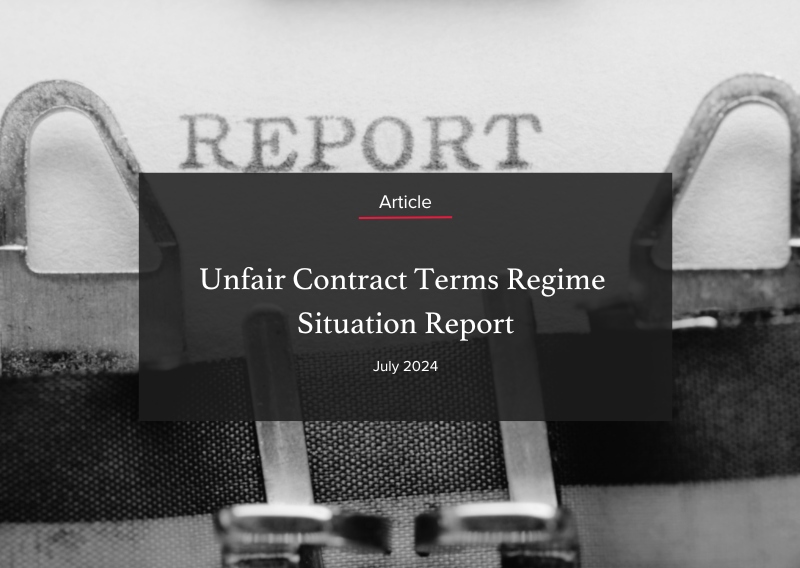The reverberations of Australia’s updated unfair contract terms regime, implemented on 9 November 2023, continue to be felt across the business community.
Since implementation, businesses and credit professionals have been diligently working to align their practices with the new requirements, facing both challenges and opportunities along the way.
This report provides insights from Results Legal principals Anna Taylor and Rob Shepley on the current situation, strategies for navigating the impact and notes some opportunities for risk mitigation and process improvement.
Emerging Trends in Litigation and Disputes
Anna Taylor reports a noticeable increase in defences alleging unfair contract terms.
However, many of these appear to be tactical rather than substantive. “It’s been apparent that these defences are being filed quite often simply to delay and stifle the proceedings and cause the plaintiff to incur unnecessary costs,” Taylor notes.
In a recent case involving a large national concrete supplier, Results Legal successfully countered such a defence. By preparing a detailed reply and foreshadowing a summary judgment application, we were able to quickly resolve the matter in favour of our client, securing costs as well.
Contract Review and Compliance
Rob Shepley highlights the proactive measures businesses are taking to ensure compliance with the new regime.
Many clients are approaching legal firms to review and amend their trading documents. This process is yielding unexpected benefits beyond mere compliance.
“What we’re finding and what clients are telling us is that there’s also some additional benefits that they weren’t expecting,” Shepley explains. “What that primarily relates to is reducing negotiations.”
The review process often uncovers unnecessary or problematic clauses that could lead to disputes.
By addressing these issues pre-emptively, businesses can streamline their contracts and potentially avoid future conflicts.
Recent Legal Development – Charging Clauses
A December 2023 Queensland District Court case (Super Start Batteries Pty Ltd v Shearer) provided some clarity on charging clauses.
The court dismissed an argument that a charging clause was unfair, finding it reasonably necessary in the context of supplying goods on credit terms.
This ruling supports the approach of assessing charging clauses on their individual merits, particularly in trade credit contexts.
However, Shepley emphasises the importance of clear drafting: “It is important to make sure charging clauses are drafted clearly and clearly demonstrate why the clause is there and why it’s enforceable.”
Unsure if your standard form contracts protect you from this defence strategy?
Reach out to our commercial law and contracts specialists to undertake a free review of your trading and standard form contracts
What can you do to protect your business today?
As the legal landscape continues to evolve, we recommend that businesses adopt the following strategies:
- Proactive compliance: Review and update standard form contracts to ensure they align with the new regime.
- Clarify clauses: Ensure all clauses, especially potentially contentious ones like charging clauses, are clearly written and justified.
- Prepare a defence: Be ready to counter meritless unfair contract term allegations swiftly and decisively.
- Schedule ongoing vigilance: Stay informed about new developments and case law related to the unfair contract terms regime.
The unfair contract terms regime is still in its early stages, and its full impact is yet to be seen. However, by staying informed and taking proactive measures, businesses can navigate these changes effectively.
As Anna Taylor concludes, “We’re looking at different strategies and we’re making sure that moving forward, our clients are complying firstly with the regime and then being armed in the best way possible to deal with any defences which may arise in the future.”
For businesses facing challenges related to the unfair contract terms regime, seeking expert legal advice is crucial to ensuring compliance and protecting their interests in this new legal environment.






